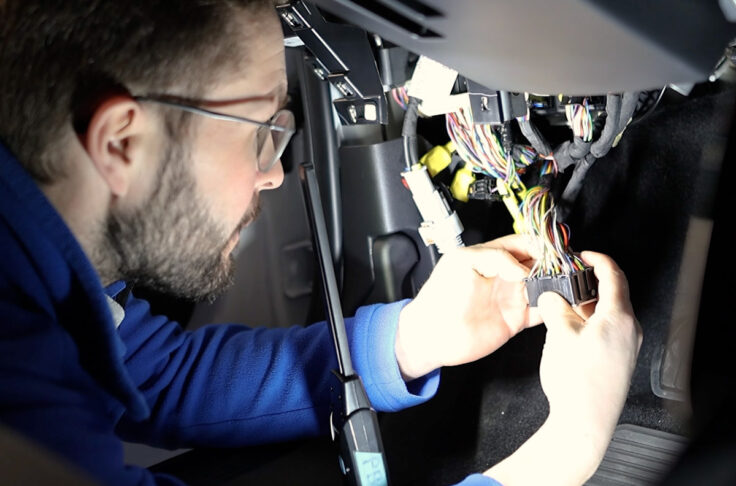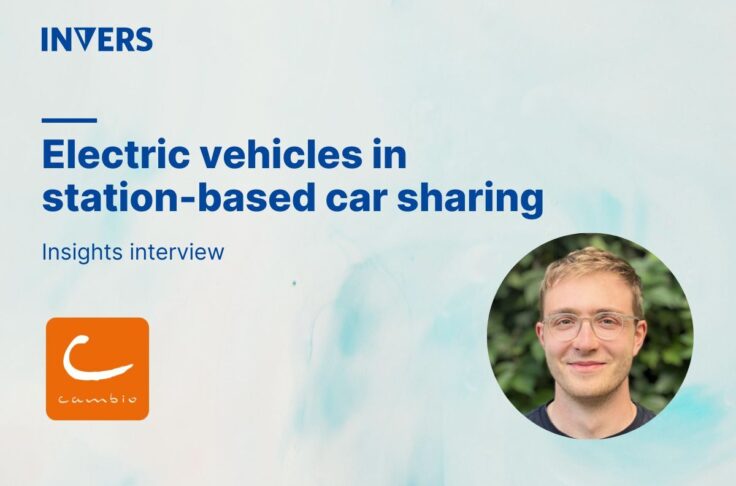Smoking in Shared Cars: It’s More Than Just the Smell

Summary
Smoking in shared vehicles drives up operational costs through intensive cleaning requirements and increased vehicle downtime. Operators often struggle to enforce no-smoking policies due to a lack of reliable evidence identifying the responsible user. Advanced smoke detectors enable real-time identification of cigarette and vape smoke, allowing for accurate enforcement and improved fleet condition.
Smoking in Cars: A Change in Sight
Lighting cigarettes in cars is controversial. While some people enjoy relaxing with a cigarette on the road after a stressful day, others are bothered by the smell or do not want to expose themselves to the health risks of involuntary exposure.
Until the early 2000s, smoking in cars was as normal as smoking in restaurants, offices or on airplanes. It was a lifestyle and people enjoyed it wherever they could.
Legal Basis for Private Cars
In the new century, health concerns and complaints from non-smokers led governments around the world to consider implementing new anti-smoking laws. This also extended to cars. Cyprus became the first European country to ban smoking in private cars in 2004. Today, countries such as Italy, France, and Ireland already have at least partial bans on smoking in private cars when minors or pregnant women are present. Germany is also considering similar legislation.
Smoking Regulations of Car Sharing Operators
Smoking is forbidden in all car sharing and car rental vehicles. Each operator has a smoking ban and fine in their terms and conditions to protect themselves from this behavior. Unfortunately, they have no real way to enforce it. A rude minority of customers takes advantage of this and ignores these rules, possibly because it is not their property.
Although the daily percentage of smokers in the EU is only at 19.7% – with large car sharing markets like Germany even below (15.7%) – smoking in shared cars is quite prominent.
There are no statistics on this, but a quick look on the street confirms that a number of customers smoke or vape in shared vehicles. Especially on the weekend nights. In addition, a quick look at one- or two-star reviews on app stores shows how annoyed a lot of people are with dirty and smelly cars.

Key Challenges for Car Sharing Operators
Imagine stepping into your shared vehicle for a stress-free drive, only to be hit by the unmistakable scent of stale cigarette smoke and cigarette ends all over the middle console. Other than a highly hazardous air quality and a bad smell, vehicles that someone smoked in present a few additional challenges for car sharing operators:
-
Revenue Loss from Downtime
Just one cigarette can require thorough cleaning to remove tobacco smoke odors and stains. This can take vehicles out of service for extended periods, thereby reducing fleet availability and leading to lost revenue from vehicles being unavailable for rental.
-
Damage to Vehicle Interiors
Smoking can cause long-term damage to upholstery and other interior components by accelerating wear and tear, causing seats and other surfaces to deteriorate. This reduces vehicles’ lifespan and resale value.
-
Increased Cleaning and Maintenance Costs
Smoking in vehicles requires frequent and intensive cleaning to remove odor and residue, significantly increasing operational costs. This includes professional cleaning services and the use of specialized equipment and materials. Also, you either have to spend money getting cleaning personnel to the cars or hire someone to drive vehicles to the cleaners.
-
Negative Customer Experience
The presence of smoke odors can lead to customer complaints, dissatisfaction, and potential loss of repeat business. A poor user experience can tarnish the brand’s reputation and lead to negative reviews and decreased customer loyalty. Imagine a parent picking up their kids from school and entering a smelly car. Kids are waiting and there is no time to get another car. This is an unfavorable experience that endangers the health of the family and will almost certainly result in a negative review.
-
Health and Safety Concerns
Secondhand smoke exposure poses health risks to customers and staff members, particularly those with allergies or respiratory issues. Ensuring a smoke-free environment is essential for the well-being of all users, to protect children and families and to maintain a safe and welcoming service.
-
Even Worse Vehicle Condition
If customers feel like no one cares what happens to the car, they won’t either. Customers who are inconvenienced by tobacco smoke exposure or the quality of the vehicle interiors may also be more inclined to leave trash or smoke in the vehicle themselves. In the end, this creates a self-perpetuating problem.

The Lack of Evidence
The issue of smoke detection is comparable to that of detecting damage to the shared car. When smoke or damage is reported from a customer at the beginning of the rental, it does not necessarily mean that the previous customer caused the damage. It is possible that the previous customers did not notice or did not care about the bad smell in the vehicle.
Consequently, operators are experiencing difficulties in correctly allocating liability and are confronted with two significant challenges:
- Smokers will try to deny their wrongdoing most of the time. It is typically understood that smoking bans are not enforced, and customers are keen to avoid paying any extra fee.
- On the other hand, incorrectly applied penalties to innocent customers result in a decline in user experience and negative user ratings. This makes operators hesitant to send out fines because they don’t want to run the risk of false positives.
How to Deal with Smoking in Car Sharing Vehicles?
Car sharing operators can continue to rely on customers feedback and non-smoking education campaigns. However, this may not have a significant impact on reducing smoking in car sharing vehicles.
Unlike scratches or dents, smoking is usually done intentionally, with the full knowledge that it is forbidden. Of course, smokers won’t ever self-report, whereas customers that cause damage will contact customer support in some cases – depending on severity.
There are two solutions to monitor and detect smoking incidents and minimize smoking in shared cars: On-board cameras and smoke detectors. Most operators are reluctant to use cameras due to GDPR concerns and the fact that customers do not want to be filmed while driving. As a result, they prefer smoke detectors, which serve a similar function in vehicles as they do in buildings.
It is common practice for operators to rely on photoelectric smoke detectors for this purpose. These detectors utilize a laser and light scattering to find smoke particles and trigger an alarm. To prevent false positives, these sensors can be calibrated to a specific amount of smoke particles. This makes them an extremely reliable tool that can also detect vapes – even with open vehicle windows.

Advantages of Smoke Detectors in Car Sharing
The reliability of smoke detectors offers a number of additional advantages for operators dealing with smoking customers. These advantages extend well beyond the improvement of vehicle conditions and an increased user experience for non-smokers.
-
Fewer Smoking Incidents
The presence of a smoke detection system alone can act as an effective deterrent, discouraging users from smoking in shared vehicles and changing their smoking behavior while driving. It also raises customer awareness of the immediate consequences for non-compliance. Therefore, you can reduce maintenance costs and downtime for cars with unpleasant smoke odors.
-
Accurate Enforcement
Clear evidence of smoking in real-time is essential to fairly and accurately enforce no-smoking policies. It ensures that you only hold the responsible parties accountable, preventing potential disputes and maintaining trust with compliant users.
-
Policy Credibility
Demonstrating that smoking violations are detected and documented with reliable evidence reinforces the credibility of your no-smoking policy. This encourages all users to comply, knowing that violations will be accurately recorded and penalized. Non-smoking customers appreciate that you’re working to protect them and improve their experience, knowing they don’t need to fear any health consequences while renting one of your cars.
-
Legal and Financial Protection
Clear evidence protects you from potential legal challenges and helps to justify cleaning fees or penalties charged to customers. It ensures that any financial claims related to smoking damages are well-supported, minimizing risks of backlash or refunds. You get reliable proof for your leasing and resale partners that your vehicles are protected from smoking.
Conclusion
Smoking in shared cars has become a major challenge for car sharing operators, even though their terms and conditions prohibit it. Advanced and reliable smoke detectors give you the ability to identify smoking incidents and fine users for their misbehavior. Customers are discouraged from smoking and you can thereby increase the overall user experience.


